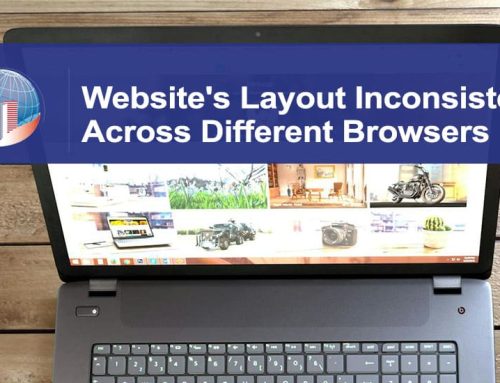
In the fast-paced world of digital marketing, having a strong online presence is essential for business success. Both landing pages and websites play vital roles in engaging potential customers, but they serve different purposes. Understanding the difference between a landing page and a website can help you make better decisions regarding promoting your business. This article will explore the key differences between these powerful tools, why each is essential, and how Salterra can help you optimize them to drive conversions.
What is a Landing Page?
A landing page is a single web page designed with one specific goal: conversion. Whether that’s capturing leads, encouraging visitors to sign up for a newsletter, or promoting a special offer, the landing page’s purpose is to guide visitors toward a single call to action (CTA). This page type is highly focused and minimizes distractions, allowing you to direct your audience’s attention toward the most important action you want them to take.
Landing pages are typically used in digital marketing campaigns, especially for Google Ads. When visitors click on an ad, they are directed to the landing page, which is crafted to match the messaging and objective of the ad. This consistency helps improve the chances of converting visitors, whether the goal is collecting information, purchasing, or downloading a resource.
Key Features of a Landing Page
- Goal-Oriented: Every landing page element is designed to fulfill a specific objective, such as generating leads or sales.
- Single CTA: The landing page typically has one prominent call to action, such as “Sign Up Now” or “Download Free Guide.”
- Custom Design for Campaigns: Landing pages are often customized to align with a marketing campaign, product launch, or special offer.
- No Navigation: To minimize distractions, landing pages often do not have a navigation bar or links to other parts of your website.
What is a Website?
On the other hand, a website is a collection of interconnected pages that provide a broad range of information about your Tucson, AZ business. It is the foundation of your online presence and is typically used to inform visitors about your brand, services, or products. A website can have multiple pages dedicated to different goals, such as showcasing your portfolio, providing contact information, or hosting an online store.
Unlike landing pages, websites often have several calls to action across different pages, each tailored to different segments of your audience. For instance, a homepage might direct visitors to learn more about your services. At the same time, a blog page could encourage users to subscribe for updates.
Key Features of a Website
- Comprehensive: A website is a complete online representation of your business, providing information across multiple pages.
- Multiple Purposes: Websites cater to various goals, such as building brand awareness, offering customer support, and providing product details.
- Navigation: Websites have a menu that allows users to explore different sections, such as the About page, Contact page, Services, and Blog.
- SEO Optimization: Websites are optimized for organic search, allowing them to rank for keywords and phrases relevant to your business.
Landing Page vs. Website: Key Differences
While a landing page and a website are crucial for your business, their differences lie in functionality and focus. Here’s a detailed comparison of how they differ:
Purpose and Goals
Landing Page: The main goal of a landing page is conversion. Whether it’s a purchase, lead capture, or event registration, the page is streamlined to direct visitors toward one specific action. This makes landing pages highly effective for Google Ads campaigns, where quick, targeted actions are needed. Of course, you need to partner with a reliable local web agency to achieve better conversion.
Website: A website serves multiple purposes and can guide users toward various actions. It provides:
- Broader scope of information about your business
- Allows visitors to explore different aspects of your services
- Blog posts
- Company History
Design and Structure
- Landing Page: A landing page is usually minimalistic, removing elements that could distract visitors from the CTA. Generally, no navigation menu or external links could prevent users from the primary objective.
- Website: A website has a more comprehensive design featuring a navigation bar that allows users to move between different pages. It’s designed to give visitors a full overview of your brand and may feature multiple CTAs across various pages.
Content Depth
- Landing Page: Content on a landing page is short and direct. Since the purpose is to convert, the messaging is concise and aligned with the CTA. Visitors are encouraged to take immediate action.
- Website: A website features in-depth content, including detailed service pages, blog posts, and resources. It allows users to learn about different aspects of your Tucson, Arizona, business and caters to visitors at various customer journey stages.
Traffic Source
- Landing Page: Landing pages are often used in paid advertising campaigns such as Google Ads, social media ads, or email marketing. Visitors are directed to the page from these ads, and the page is designed to convert traffic quickly.
- Website: A website usually attracts traffic from organic search (SEO), referrals, and direct visits. It’s built to rank for various keywords related to your business, providing a steady flow of visitors looking for information or services.
Why Use a Landing Page?
Landing pages are best suited for businesses running targeted marketing campaigns. Whether it’s a limited-time offer, product launch, or lead-generation effort, a landing page allows you to craft a highly specific message tailored to the campaign’s goal. By eliminating distractions, a landing page increases the likelihood of a visitor taking the desired action.
Salterra has extensive experience creating high-converting landing pages optimized for Google Ads and other digital marketing campaigns. A landing page is a powerful tool for maximizing conversions.

Why Use a Website?
A website serves as your entire online first impression. Businesses need a robust website that provides a complete picture of their brand, products, and services. Websites are particularly useful for businesses that build long-term customer relationships and provide resources that engage visitors over time.
At Salterra, we understand that your website is not just a static collection of pages—it’s a dynamic, interactive platform designed to engage users and help them find the information they need. We prioritize creating an efficient user experience on websites as a core part of our service. Whether it’s a blog, an e-commerce store, or a service page, our team ensures that your website is structured to support your business goals.
The Role of SEO
Both landing pages and websites play important roles in your search engine optimization (SEO) strategy. A landing page, while often part of a short-term campaign, can still be optimized for specific keywords relevant to the campaign. However, websites typically serve as the primary driver of organic search traffic.
Salterra’s SEO experts can optimize your website and landing pages to rank higher in search engine results, driving traffic and increasing conversions.
Which One is Right for Your Business?
Businesses usually benefit from a website and landing pages. Your website serves as the hub for all your online activities, providing a wealth of information to your visitors. However, landing pages are essential to achieving the highest conversion rates when running specific marketing campaigns. Utilizing minimalist web design principles on your landing pages can enhance their effectiveness by reducing distractions and focusing visitors’ attention on your call to action.
Landing pages are particularly effective for businesses that rely heavily on Google Ads. They allow you to create highly targeted experiences that guide visitors directly to your desired action. On the other hand, a website helps establish credibility and provides a long-term online presence.
Landing Page vs. Website: Pros and Cons
When deciding between a landing page and a website for your business, it’s essential to consider the advantages and limitations of each. Both have unique features that can impact your marketing strategy and overall digital presence. Below, we’ll break down the pros and cons of landing pages and websites to help you choose the right tool.
Pros and Cons of Landing Pages
Landing pages are highly effective for targeted marketing campaigns but have some limitations. Here’s a quick overview of the pros and cons:
Pros:
- Focused Design: Landing pages have a single objective, making them ideal for conversions.
- Higher Conversion Rates: Landing pages are free of distractions, driving visitors toward a specific call to action (CTA), leading to better conversion rates.
- Campaign-Specific: Landing pages are customized to match the messaging of specific campaigns, which increases the relevance of the content to visitors.
- Optimized for Ads: Landing pages are the best choice for Google Ads or other paid advertising where quick conversions are needed.
- Minimal Distractions: With fewer elements, visitors are more likely to complete the intended action, whether signing up or purchasing.
Cons:
- Limited Information: Landing pages typically have less content, which may not provide all the information visitors need.
- Temporary Use: Since landing pages are often tied to campaigns, they might only be used for short periods.
- SEO Limitations: While they can be optimized for keywords, landing pages are less effective than websites for long-term organic SEO efforts.
- Lack of Navigation: Visitors can’t explore additional services or products without links to other parts of your website, which may limit engagement.
Pros and Cons of Websites
Websites are the cornerstone of your business’s online presence. However, they also come with certain trade-offs. Here are the pros and cons of using a website:
Pros:
- Comprehensive Content: Websites can house various pages, each serving different purposes, such as services, blogs, and contact information.
- Multiple Goals: A website can support various calls to action across different pages, helping to meet broader business goals.
- Brand Visibility: A website serves as your entire online first impression, offering visitors a full view of your brand and services.
- SEO Benefits: Websites can rank for a wide range of keywords, driving organic traffic over time.
- Navigation and User Experience: Websites offer clear navigation that allows visitors to explore different parts of your business at their own pace.
Cons:
- Less Focused: With many pages and CTAs, websites may not be as conversion-focused as landing pages, which can dilute the visitor’s attention.
- More Complex: Websites require more time and effort to develop and maintain due to the larger content volume.
- Lower Immediate Conversion Rate: Websites are not as optimized for short-term campaigns as landing pages, which may result in lower immediate conversions.
- Higher Bounce Rates: With more information to browse, visitors may leave the website before taking action.
By weighing the pros and cons of landing pages and websites, you can choose the best tool for your business goals. A landing page is your best bet if you’re focused on a specific campaign and need quick results. However, a well-structured website is crucial to build a long-term digital presence.
Common Questions on Landing Page vs. Website
Do I Need a Landing Page if I Have a Website?
Yes, even if you have a website, using landing pages can be highly beneficial for specific marketing campaigns. While your website serves as a comprehensive hub for your brand, offering a range of information across various pages, landing pages have a very focused purpose. They are designed to drive a specific action, such as collecting leads, promoting a new product, or encouraging sign-ups for a webinar.
A website can sometimes overwhelm visitors with options, resulting in lower conversion rates for particular offers. On the other hand, a landing page removes distractions. It guides visitors toward completing one targeted action, whether filling out a form or purchasing. So, if you’re running paid ads, email campaigns, or social media promotions, creating a dedicated landing page ensures the highest chance of converting visitors from those efforts.
For businesses like Salterra, where web design and lead generation are critical, landing pages complement a website by driving measurable results for individual marketing initiatives. Even with a well-optimized website, landing pages increase the efficiency and success of specific campaigns, providing clear pathways for visitor conversions.
Can You Use a Landing Page as a Website?
Technically, you can use a landing page as a website, but it’s not recommended for long-term use. A landing page is designed for a very narrow focus, usually linked to one campaign or goal, and lacks the comprehensive structure of a traditional website. A full website is essential for a permanent, professional online presence. It allows visitors to explore your services, learn more about your business, and build trust with your brand over time.
However, for very small or startup businesses that are just beginning, a landing page could be a temporary solution to establish an online presence while a full website is under development. It allows you to capture leads or promote a specific product quickly. But as your business grows, having a fully functional website becomes crucial for showcasing your services, ranking on search engines, and providing visitors with a complete view of your offerings.
While a landing page can sometimes serve as a temporary website, it’s not a sustainable option for a long-term digital strategy. A complete website offers more flexibility, greater SEO benefits, and the opportunity to build a lasting relationship with your audience.

Landing Page and Website: Addressing Business Needs
Understanding the difference between a landing page and a website can help you leverage both to meet your business’s unique needs. Landing pages are essential for driving conversions in targeted campaigns, while a website serves as the backbone of your digital presence, offering your audience a wide range of information.
Whether you need help building a high-converting landing page or want to revamp your website for better SEO, Salterra has over a decade of experience delivering top-quality web solutions that help businesses thrive. Contact us today at 520-214-3729 to learn how we can help grow your business with a website that works for you 24/7.
Frequently Asked Question and Salterra Website Design.
Why Trust Salterra
Salterra Web Design is a premier Tucson web design agency dedicated to helping local businesses thrive online. Since 2011, we have specialized in creating stunning, user-friendly websites for small—to medium-sized businesses in Tucson, Arizona. Our team of experienced web developers, graphic designers, and digital marketing professionals works together to provide comprehensive digital solutions tailored to your business needs.
At Salterra, we offer a wide range of services designed to enhance your online presence and drive business growth:
- Web Design and Development: We create beautiful, responsive websites that look great and provide a seamless user experience across all devices. Our designs are tailored to reflect your brand identity and meet your business goals.
- Search Engine Optimization (SEO): Our expert SEO services ensure your website is easily found by potential customers. We use advanced techniques to improve your search engine rankings, increase organic traffic, and boost your online visibility.
- Digital Marketing: From social media management to pay-per-click (PPC) advertising, our digital marketing strategies are designed to engage your audience and convert visitors into loyal customers. We focus on creating targeted campaigns that deliver measurable results.
- Content Marketing: Our team produces high-quality, engaging content that resonates with your audience and enhances your brand’s online presence. We help you build authority and trust through valuable and informative content.
- Website Hosting and Maintenance: We provide reliable hosting solutions and ongoing website maintenance to ensure your site remains secure, up-to-date, and performs at its best.
As a family-owned business, we offer personalized service and build long-term client relationships. Our commitment to quality work and fair pricing has earned us a solid reputation in the Tucson community. We understand local businesses’ unique challenges and are passionate about helping them succeed in the digital world.
If you are looking for a trusted partner to elevate your online presence, look no further than Salterra Web Design. Contact us today to learn how we can help your Tucson business grow with our expert web design and digital marketing services.
Contact Information:
Email: info.salterra@gmail.com
Phone: (520) 214-3729
Location: Tucson, AZ
Salterra operates in Arizona, with a strong presence in key regions such as Tucson, Tempe, Phoenix, and Chandler.
Our Locations
Web Design in Casa Adobes | Web Design in Catalina Foothills | Web Design in Marana | Web Design in Oro Valley | Web Design in Drexel Heights
Web Design Sahuarita | Web Design South Tucson | Web Design Green Valley | Web Design Vail




